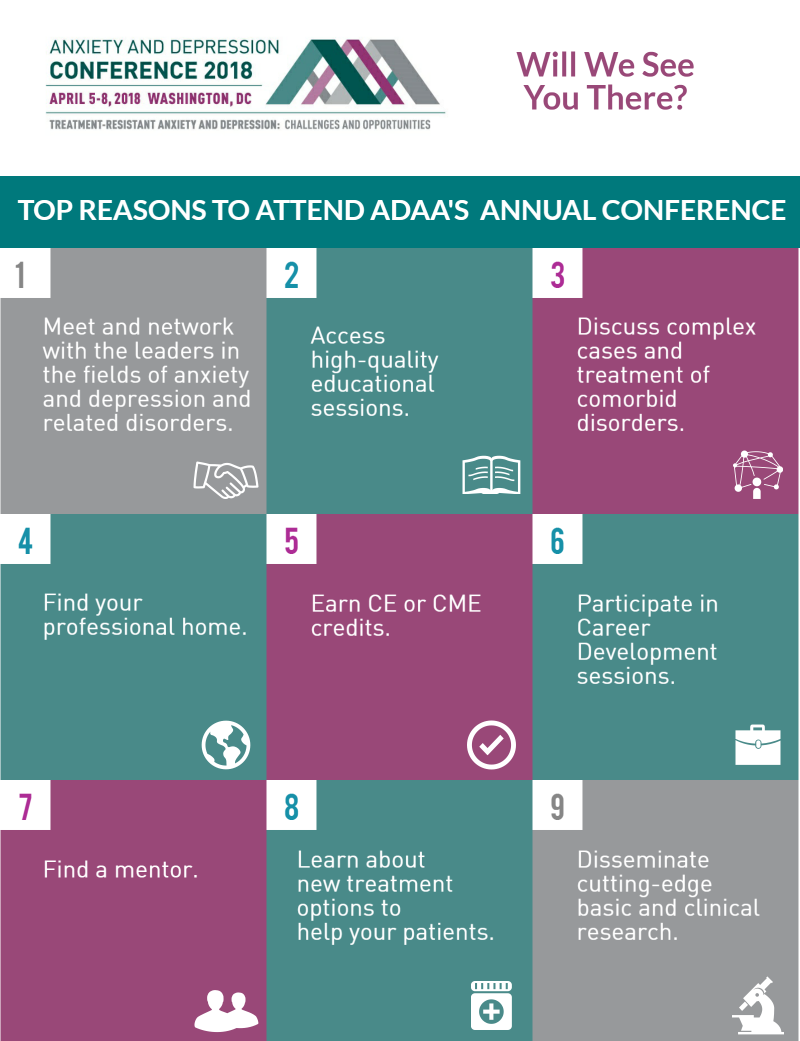WHY ATTEND?
Connections. Science. Practice. Training.
Will We See You There?
This conference is like no other in scope and depth. You will have unsurpassed access to experts in clinical care and research, opportunities to network with colleagues from around the globe, and take away experiences that will enrich your research and practice.



 “I’m back!” That was the phrase I’d said to myself starting in middle school when my malaise lifted and a cycle of joy came around. I seemed to live in a world moving in slow motion. It was only when “I was back” that I returned to normal life speed. This slow-to-normal oscillation went on well into my thirties. But I had no idea I was depressed.
“I’m back!” That was the phrase I’d said to myself starting in middle school when my malaise lifted and a cycle of joy came around. I seemed to live in a world moving in slow motion. It was only when “I was back” that I returned to normal life speed. This slow-to-normal oscillation went on well into my thirties. But I had no idea I was depressed.




